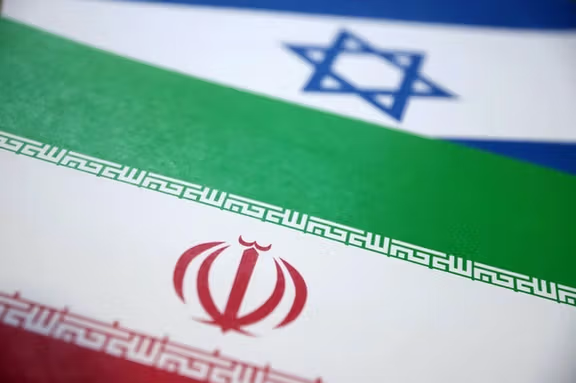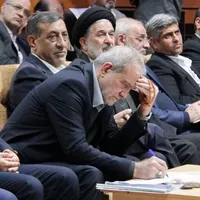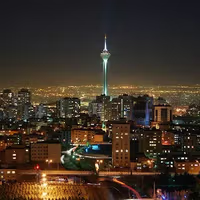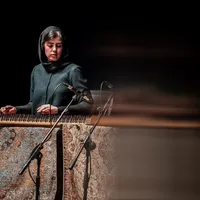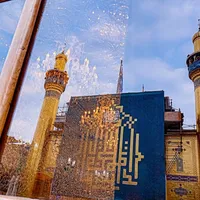Iran's President Claims His Admin Exposed $3.5bn Scandal
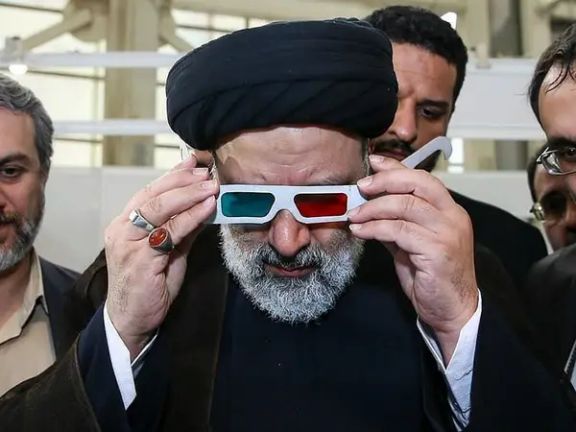
Iran’s president has said talk will not be enough to resolve the $3.5billion tea scandal in which ministers and officials are implicated.

Iran’s president has said talk will not be enough to resolve the $3.5billion tea scandal in which ministers and officials are implicated.
Commenting on allegations that vast fortunes meant for tea imports have been embezzled, President Ebrahim Raisi claimed his government exposed the scandal nine months ago in publicly broadcast hearings. Iran's Judiciary has recently revealed that several senior officials of Raisi's administration have been implicated in the case.
He also cited Supreme Leader Ali Khamenei's assertion that "just talking about the thefts does not solve the corruption problem".
Accusations in the corruption case implicate numerous government offices spanning both current and past presidential administrations. This includes ministers of agriculture and industry, along with the governors of the Central Bank of Iran and the heads of the Iranian Customs Administration.
Raisi’s comments come as Supreme Leader Ali Khamenei, yet to comment on the case, consistently dismisses assertions of systematic corruption within Iran.
The scandal comes as the government struggles to curb inflation running above 50 percent, coupled with shortages of medicines and powdered baby formula.
Last week, Iran's Inspection Organization disclosed an investigation into a prominent tea importer for questionable financial practices. The company, responsible for a significant portion of the country's tea imports, allegedly received $3.37 billion in foreign currency at a discounted government rate for tea and machinery imports from 2019 to 2022. It is accused of selling $1.4 billion of the currency on the free market at a higher rate.
Alireza Salimi, a member of the parliament, commented on the corruption case saying: "The tea scandal has saddened many; all responsible parties should swiftly provide accurate and truthful information to prevent individuals deeply involved in corruption from taking advantage of the situation."
Observers suggest the developments point to systematic corruption, implicating several high-ranking government officials.
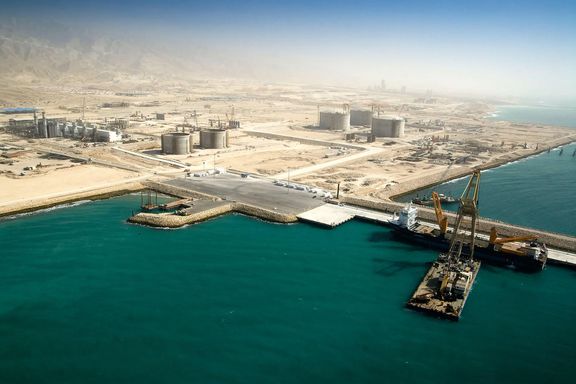
Iran, despite having the world's second-largest natural gas reserves, has not yet become an LNG producer, and faces a critical shortage for essential domestic needs.
Natural gas that has been cooled to a liquid form for convenient and secure non-pressurized storage or transportation is known as liquefied natural gas, or LNG. The gas is cooled to around -260°F throughout the process, which lowers its volume by roughly 600 times and makes it more useful for long-distance transmission in situations where pipelines are not an option.
According to the IEA's most recent study, rising economies are forecast to increase demand for LNG overall, and a 25% increase in global LNG capacity between 2022 and 2026—led by the US— which is expected to ease market tightness.
With an export volume of 114.1 billion cubic meters, Qatar was the largest LNG exporter in the world in 2022. The average monthly record for US net natural gas exports as LNG and via pipeline was 13.6 Bcf/d in May 2023. With an average of 11.6 Bcf/d in the first half of 2023, the United States was the world's leading exporter of natural gas.
Iran was estimated to have produced 262.261 billion cubic meters (bcm) of natural gas in 2022, a 2% increase from the year before. During that time, the nation consumed 230 bcm of gas. Iran has exchange agreements with Turkmenistan and supplies natural gas to Turkey and Iraq.
Iran has been progressing with the Iran LNG project, located at Tombak Port, around 50 km north of Assaluyeh. Managed by the Iran LNG company, a subsidiary of the Iranian Gas Exporting Company (IGEC), the project involves two LNG trains, each capable of producing 5.4 million tons of LNG annually. One of the three planned LNG export projects, the 10.8 million t/yr Iran LNG project, was halted due to international restrictions linked to Tehran's nuclear program.

In late November, the CEO of Iran Natural Gas Liquefaction Company, Hadi Amirshaghaghi, gave an update on the Iran-LNG project. Started in the early 2000s, the project encountered obstacles and progressed just 38% by 2013. Resurrected since 2021, it is currently 53% completed, with major parts ready for operations.
It is claimed that the ongoing LNG project lost $5 billion a year, which is why the present administration has made its recovery a top priority. US sanctions, finance problems, and acquiring technology are among the obstacles. Iran also needs to address its limited export potential and high domestic gas consumption. By mid-2025, the Raisi administration hopes to have the project finished.
The severe natural gas shortage in Iran, particularly problematic during winter, has led to disruptions in gas supply for residential usage, forcing the use of inferior fuel oil like mazut, contributing to air pollution. Amirshaghaghi, has suggested a technological capability to reverse part of the LNG manufacturing process, turning it back into sweet natural gas. With 99% progress in storage tanks and over 50% progress in maritime facilities, addressing the gas network shortfall may involve announcing and attracting investors, providing a significant gas injection into the national network.
Presently, Iran's natural gas consumption grows by 5% annually, but growth rate in output is flat or even decreasing. It expects South Pars field in the Persian Gulf to become less productive and pressured over the next three to four years, turning the country from an energy producer to an importer. The amount of gas imbalance is expected to increase from 250 million cubic meters per day to 300 million cubic meters per day this year and 500 to 550 million cubic meters per day by the end of 2031.
A $40 billion Memorandum of Understanding between the National Iranian Oil Company (NIOC) and Gazprom was signed by Iran and Russia in July 2022. The MOU sought to cooperate on several energy-related initiatives, such as the completion of LNG projects in Iran and the development of gas and oil fields. It is noteworthy, therefore, that the MOU never came to pass, and that Russia did not provide Iran with the anticipated financial assistance or technology needed to finish the Iran LNG project.
Sanctions pose serious challenges for Iran, preventing it from obtaining essential liquefaction technology and endangering its financial stability. Iran may have the gas to liquefy, but there are still limitations to the feasibility of LNG exports. The nation has significant obstacles in acquiring liquefaction technology, and its past endeavors in pursuing these kinds of projects seem destined for protracted periods of financial waste. Although obtaining a supply of gas for liquefaction and export is difficult, accepting the less complicated and non-competitive regasification method appears to be a viable remedy.
Additionally, regasification—which is the process of returning LNG to its original gaseous state—represents a comparatively simple process that operates in a less competitive market than liquefaction. This anticipated change denotes a move away from Iran's initial objective of becoming a significant LNG exporter and toward a likely role as an LNG importer. This change is significant because it shows how Iran has changed from being an exporter to an importer in the world energy market. Given the lack of natural gas, importing LNG from Qatar would be the only practical alternative if the Raisi administration is successful in completing the Iran LNG project. This is because of the short distance involved.
It is also critical to highlight the many difficulties that come with LNG regasification, such as the need to build necessary infrastructure and navigate through sophisticated technological issues. These elements add to the complexity of this energy transition, emphasizing the necessity of meticulous preparation and strategic thought.

An Austrian man carried out "hostile reconnaissance" against Iran International, which could have been used in an attack on the channel, prosecutors told a London court on Monday.
Just hours after flying in from Austria in February, Magomed-Husejn Dovtaev is said to have tried to record the security arrangements of the Persian-language Iran International channel's headquarters in west London, the court heard.
Dovtaev, 31, is charged with a single count of attempting to collect information likely to be useful to a person committing or preparing an act of terrorism. He has pleaded not guilty.
Prosecutor Nicholas de la Poer told London's Old Bailey on Monday that Iran International became a target for reprisals following its reporting on the death in custody of Mahsa Amini in Iran last year and subsequent protests in the country.
Iran's minister of intelligence later declared Iran International a terrorist organization, de la Poer said, which meant its employees "became targets for violent reprisals".
"The prosecution does not suggest that (Dovtaev's) purpose on Feb. 11 was to carry out such an attack or that it was intended that he would participate in an attack on a further date," de la Poer said.
But, de la Poer added, Dovtaev went to Iran International's headquarters, "no doubt acting on the instructions of others", in order to gather information about its security arrangements.
He told the jury this information would be useful to anyone planning a terrorist attack against Iran International.
Dovtaev's visit "demonstrates that planning by others was already under way", de la Poer said, saying that videos pre-dating Feb. 11 of Iran International's headquarters and security protection had been saved to his phone.
The trial, which is expected to conclude next week, continues.
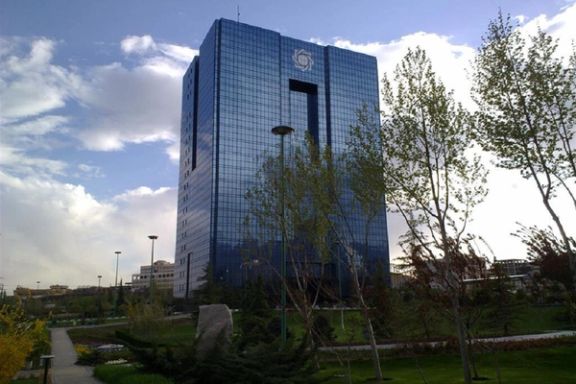
Reports about a money-losing foreign currency trading scheme at the central bank of Iran has surfaced as the media is abuzz with another large corruption case.
The Central Bank of Iran issued a statement Monday rejecting reports that the bank bought foreign currency at a higher rate and sold it to a cabal of insider businesspeople. The government’s foreign currency policy has been one of the chronic problems in Iran’s economy. The central bank allocates discounted foreign currencies supposedly for essential goods, but they end up at the hands of regime insiders who mainly sell them in the black market for profit.
The parliament's research center released an analytical report on the recently submitted budget bill of President Ebrahim Raisi’s administration, inadvertently revealing that in the first seven months of the Iranian year (started March 21), the government has spent $4.5 billion more than the foreign currencies obtained from oil revenues, but giving out cheap dollars for the import of five essential goods.
The current exchange rate for the US dollar against Iran’s national currency rial is about 500,000 rials. According to the report, the government has taken $4.5 billion with the rate of Iran’s National Currency and Gold Exchange Center – at about 400,000 rials per dollar -- and given to its cherrypicked businessmen at the rate of 285,000 rials per dollar.
According to calculations by Iran’s leading economic daily Donya-e Eqtesad, the difference between these two rates amounts to about 600 trillion rials (about $1.2 billion at current rate at free market) that has been added to the country’s monetary base, further feeding soaring inflation. Essentially the government printed money to buy the dollars at a higher rate and sell it cheaper to importers. The daily predicted that the current trend will lead to an annual rise of about one quadrillion rials ($2 billion), whose inflation will affect the entire society.
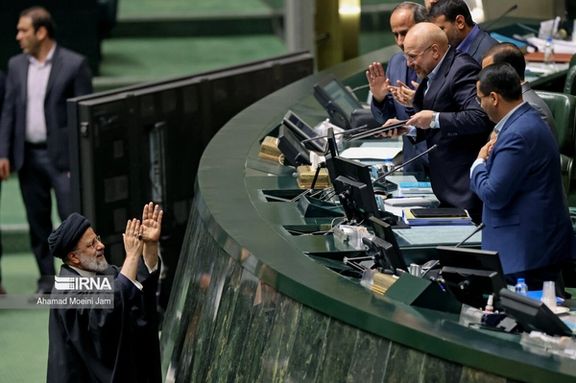
“It seems that the insistence of policymakers on promoting welfare policies through currency policies is still in force, with no significant changes in sight. This is happening while currency fluctuations and corruption in the currency allocation process are among the most recognized consequences of welfare-driven currency policies,” Donya-e Eqtesad said. “These policies not only fail to achieve welfare goals but as seen in the tea industry's foreign currency corruption case, they lead to a multitude of damages to society.”
In fact, 'welfare' is just a buzz word, justifying the provision of cheap dollars to people with influence in the political system. Prices for essential goods such as foodstuff continue to rise despite the discounted dollars provided to importers. The justification for cheaper dollars is to keep prices low and prevent higher inflation, but that has not worked as food price inflation stands at around 70 percent.
Iranians are still in shock about recent revelations about a huge corruption case involving nearly $3.5 billion and key Islamic Republic figures. Whenever such cases are revealed, the authorities usually cope out of responsibility by blaming former administrations or officials from the opposing political camp. However, the $3.5 billion embezzlement case of Debsh Tea Company involves officials from both the current and the previous presidential administrations -- including ministers of agriculture, industry as well as the governors of the Central Bank of Iran and the chiefs of Iranian Customs Administration. It has also led to discord between the judiciary and the presidential administration as well as the parliament.
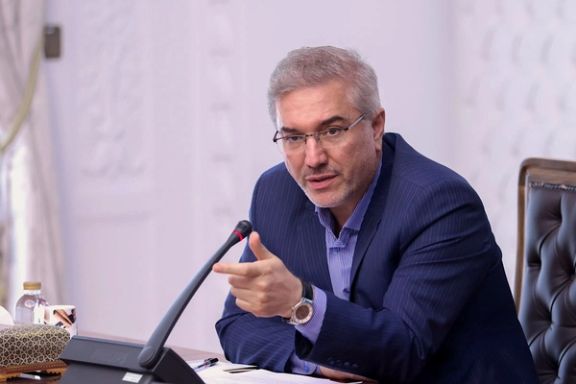
Iran canot afford to give employees sizable pay hikes despite runaway inflation, the official in charge of economic planning has warned.
The head of the Organization for Planning and Budget, Davoud Manzour, was speaking as a deepening cost-of-living crisis had left workers hoping for a pay rise of at least 30%.
But Manzour said: “Despite the anticipated rise in salary expenses, actual income fails to materialize, leading to a deepening imbalance in the government's budget.”
Dashing hopes for a giveaway, he warned that dependence on the Central Bank and banks “triggers excessive withdrawals, an expansion of the monetary base, and an exacerbation of inflation”.
In the wake of the economic concerns, with inflation above 46%, Iran's government has put forth a proposal for a pay rise of just 20% for civil servants in the upcoming calendar year.
Iran has been rocked by waves of anti-regime protests and workers' strikes since 2017, fueled by discontent among young people, primarily attributed to the ongoing economic crisis.
Local media reports underscore the severity of the situation, noting that prices for some food items have doubled in 2023 compared to the previous year. Statistical data from the Statistical Center of Iran (SCI) reveals alarming increases, with the prices of mutton and beef soaring by 151% and 132%, respectively, in the current year.
The persistently high inflation has taken a severe toll on the poor and the middle class. Their struggle to afford basic necessities, particularly in terms of food and housing, has intensified as salary and wage increases have failed to keep pace with inflation.
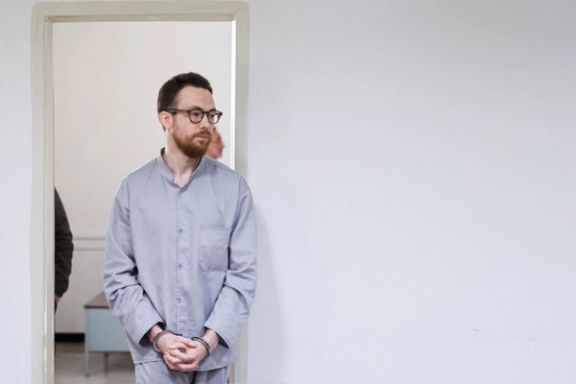
Sweden has demanded the immediate release from jail in Iran of an EU diplomat who has been accused of spying.
Johan Floderus, 33, is being held in Tehran’s Evin prison ahead of a trial on charges of spying for Israel and "corruption on earth," a crime punishable by death.
Speaking on Monday, Swedish Prime Minister, Ulf Kristersson said the charges against Floderus are “completely without factual basis”.
He told a press conference in Stockholm: “We demand his immediate release.
We have very intensive work we are showing Iran on this issue. But I will not be going into anything of the contents of that work.”
Floderus was arrested while on holiday in Iran last year. His family insists that the detention lacks justifiable cause or due process.
The situation has sparked concerns among human rights organizations and Western governments, who allege that Iran is leveraging arrests on security charges for political motives. Despite the accusations, Tehran claims that such detentions adhere to its criminal code and are devoid of political motivations.
Diplomatic tensions between Sweden and Iran have risen since 2019, stemming from Sweden's arrest and subsequent life sentence of former Iranian official Hamid Nouri. He was convicted of participating in mass executions and torture of political prisoners in the 1980s. In response, Iran protested by recalling its envoy to Sweden.
In May, Iran carried out the execution of a Swedish-Iranian dissident accused of leading an Arab separatist group. The dissident was alleged to be implicated in attacks including one on a 2018 military parade that claimed 25 lives.
